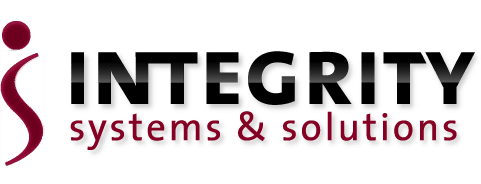
By: Michael Vincelette on May 27th, 2025
What Is the Key to Success for HIPAA Compliance in Dental and Medical Offices?
If you're a healthcare provider, you already know that HIPAA compliance is mandatory. But ask 10 practices how they manage HIPAA and you’ll get 10 different answers — some better than others. So what separates organizations that truly succeed at HIPAA from those that struggle to keep up?
The key to HIPAA compliance is not just documentation or software. It’s creating a culture of awareness and accountability across your entire team.
What HIPAA Compliance Really Means
HIPAA, or the Health Insurance Portability and Accountability Act, was created to protect the privacy and security of protected health information (PHI). For dental and medical practices, it means having systems in place to:
- Limit who can access PHI.
- Protect PHI stored or transmitted electronically.
- Notify patients and regulators in the event of a data breach.
But HIPAA compliance isn’t a one-time checklist. It’s an ongoing effort that touches every part of your operations — from the front desk to the cloud systems you use for storage.
Why a Culture of Awareness and Accountability Is the Real Key
Culture is the foundation. You can have all the right forms and policies, but if your team doesn’t understand the “why” behind HIPAA — or if people are afraid to speak up about mistakes — compliance breaks down.
Here's What a Strong HIPAA Culture Looks Like
- Every staff member knows what PHI is and how to protect it.
- Leadership models best practices and makes compliance a priority.
- Employees feel safe reporting incidents or concerns.
- Training is ongoing, relevant and role-specific.
- Staff recognize that HIPAA isn’t “someone else’s job” — it’s everyone’s.
When this mindset is present, HIPAA policies aren’t just rules — they’re part of your office identity.
Supporting Keys to HIPAA Compliance
While culture leads the way, several other factors support your efforts and keep you compliant over time.
1. Regular, Role-Based HIPAA Training
Annual training isn’t enough. New hires should be trained right away, and refresher sessions should be tailored to each employee’s responsibilities.
2. Written Policies and Procedures
These documents must reflect how your office actually works — not generic guidelines. Policies should be reviewed and updated regularly.
3. Risk Assessments and Audits
The HIPAA Security Rule requires ongoing risk analysis to identify and correct vulnerabilities in your systems and workflows. Document everything.
4. Clear Roles and Responsibilities
Everyone needs to know their part. This includes who is responsible for managing compliance, investigating incidents and handling patient inquiries.
5. Strong Technical Safeguards
HIPAA requires you to secure electronic PHI (ePHI) with:
- Access controls and strong passwords
- Data encryption and backups
- Audit trails and automatic logoffs
6. Signed Business Associate Agreements (BAAs)
You must have written agreements with any third-party vendors who handle PHI — such as billing services, IT providers or cloud storage platforms.
What Happens When HIPAA Isn’t Prioritized
A weak HIPAA program exposes your office to serious risks:
- Fines and penalties that can reach hundreds of thousands of dollars
- Loss of patient trust due to privacy violations or data breaches
- Operational setbacks from corrective action plans or investigations
- Stress and confusion among your team during an audit
Non-compliance is often the result of inattention, outdated systems or assuming someone else is handling it.
How To Stay Compliant Long-Term
HIPAA compliance doesn’t have an end date. You need a rhythm that makes it part of how your office operates every day.
HIPAA Compliance Best Practices
- Review and update your HIPAA manual at least once a year.
- Perform annual risk assessments and document the results.
- Conduct regular staff training with sign-offs.
- Stay informed about rule changes or breach trends.
- Partner with IT providers who understand healthcare and HIPAA.
The key to HIPAA compliance isn’t just a checklist or a binder — it’s a team-wide commitment to protecting patient privacy and maintaining trust. Building a culture of awareness, backed by strong training, systems and support, is how smart practices succeed.
If you’re ready to improve your HIPAA readiness, Integrity Systems & Solutions can help you assess risks and put the right safeguards in place with IntegrityComply. Think of us as your IT department with a deep understanding of dental and medical compliance — here to give you peace of mind, every step of the way.


